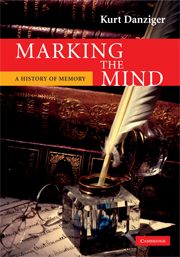1 - Does memory have a history?
Published online by Cambridge University Press: 05 June 2012
Summary
All human societies remember their ancestors but they do so in very different ways. Where there is no writing, memory of one's forebears is evoked by shared reminiscences, mementos or ceremonies, but never by rereading their letters or obituaries. In some places, ancestors are recalled by donning masks, by imitating their gestures and by going into a trance. We remember our dear departed when we pay a visit to the cemetery. But cemetery visits, as we know them, are essentially a nineteenth-century innovation. Memorial practices change through the ages. The role played by monuments and processions, for example, has varied historically, not only in commemorating one's immediate ancestors, but also in the way the collective memory of societies is mobilized.
Historical change in social practices of recall is not limited to ancestral memory. Among non-literate people, rules and regulations cannot be recalled by consulting written documents, though consultation of elders is common. There may also be specialists in memory whose services may be required even after the introduction of writing. Ancient Greece had the institution of the mnemon, a person whose job it was to remember religious or legal matters relevant to decision-making and jurisprudence. Roman politicians and lawyers were known to own graeculi, ‘little Greeks’, who were intellectually trained slaves that were also required to memorize social and technical information so that they could prompt their masters during court sessions and political or social events.
- Type
- Chapter
- Information
- Marking the MindA History of Memory, pp. 1 - 23Publisher: Cambridge University PressPrint publication year: 2008



